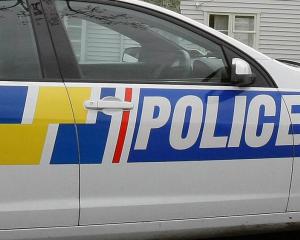The focus turned today to who will buy the assets of South Canterbury Finance and the unintended consequences of the Retail Deposit Guarantee Scheme.
South Canterbury Finance collapsed yesterday triggering a $1.6 billion payment to 35,000 depositors, and more to other lenders, which the Government will now try to retrieve from the sale of a business comprising $900 million performing loans, toxic loans and investments in Scales Corp, Helicopter Line and Dairy Holdings.
Though the Government said there will be no fire sale the buyers that SCF did not get across the line are seen as buyers already familiar with the assets.
George Kerr, chairman of Pyne Gould Corp (PGC) subsidiary Torchlight, a senior ranking lender to SCF, said his company was interesting in some of the SCF assets.
Mr Kerr has also been involved in the deal to merge Marac with Canterbury Building Society and Southern Cross Building Society with an eye in creating a new bank.
SCF is a going concern, but the receiver must decide the best route to maximise value.
SCF chief executive Sandy Maier said that prior to the receivership SCF had buyers it thought were worthwhile but it was always looking for a buyer for the whole lot.
The Crown has to consider the costs of a longer receivership against a quick sale.
"A first loss may be the best loss. That is a decision that has to be made," he said.
Comments by Mr Maier yesterday on TV3's Campbell Live programme also triggered a debate about the unintended consequences of the guarantee scheme.
The big banks, which largely funded the scheme, lost deposits as "rate chasers" moved money to SCF, allowing it to pursue aggressive growth in risky areas.
"It might have been cynical, it might have been merely incompetent... it probably violated a lot of prudent lending criteria," Mr Maier said.
Blogger Cactus Kate argued that the taxpayer did not have to bail out SCF because it breached the deed of guarantee requirement to run its business in a prudent manner.
David Tripe, director of the Centre for Banking Studies at Massey University, said that in six weeks time there would not be much of a deposit guarantee scheme left. The extended scheme from October 12 covers just seven institutions now that SCF has failed.
He said there was evidence that the margin between bank deposit interest rates and finance company rates narrowed as a result of the guarantee.
The guarantee scheme was put in place in 2008 when there was evidence depositors were starting to withdraw money after the collapse of Lehman Brothers.
Mr Tripe said it was very hard to know if there would have been a run on financial institution in New Zealand.
He expects the four big Australian banks, Kiwibank and TSB bank to pick up more than 90 percent of the SCF deposits.



